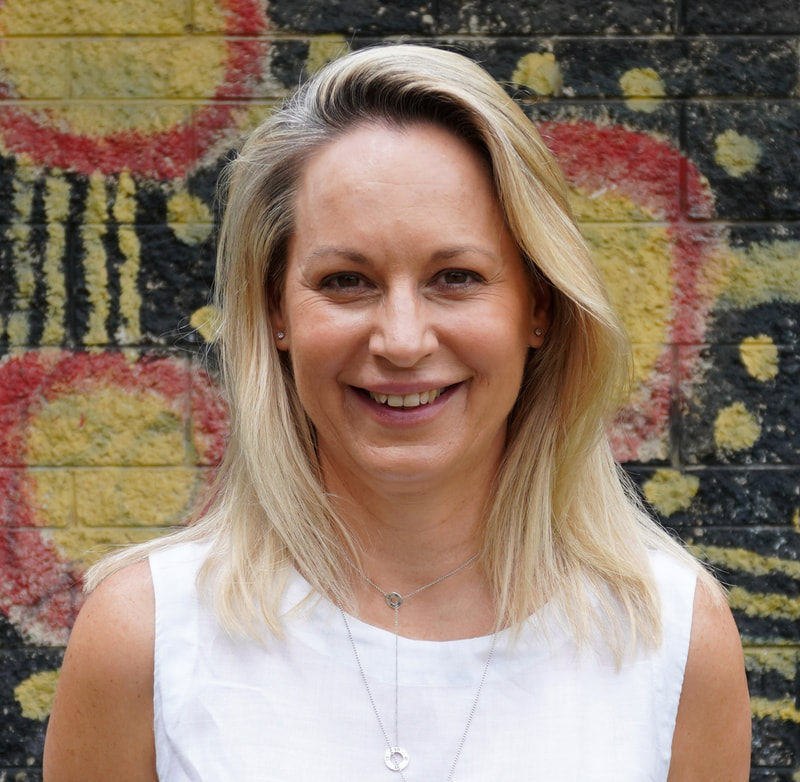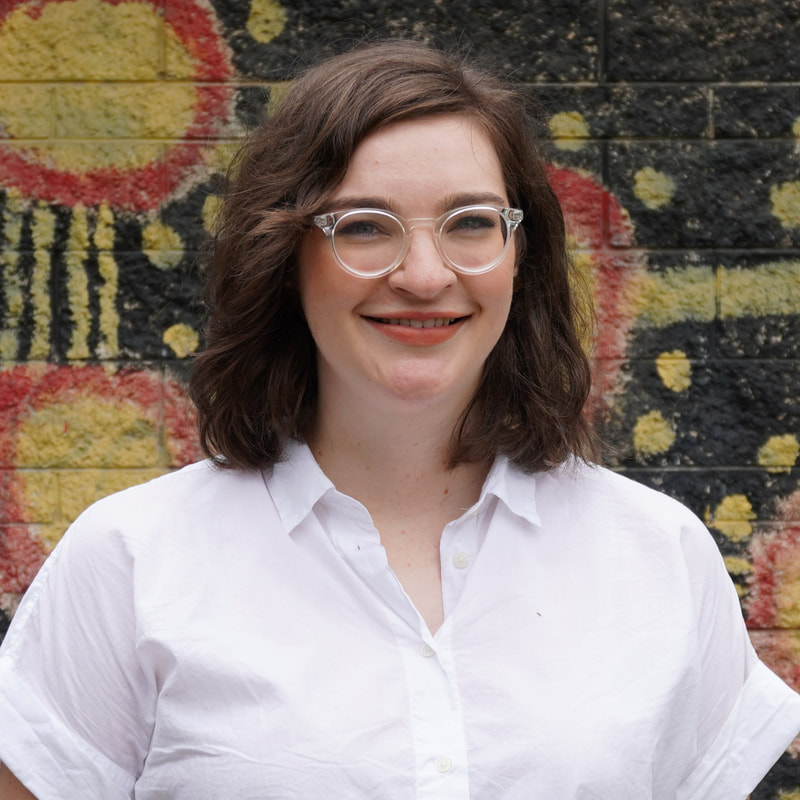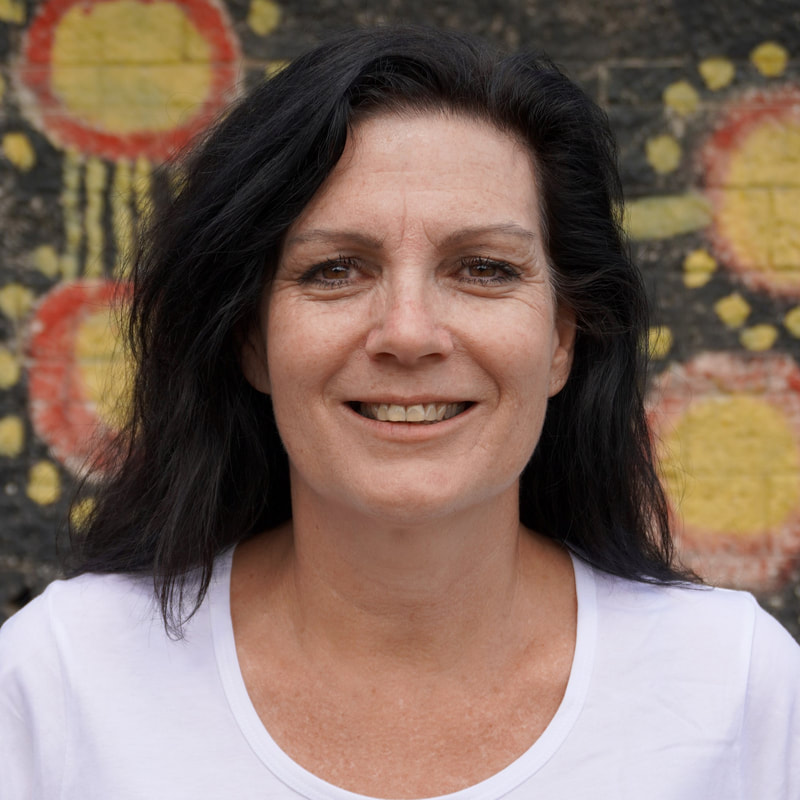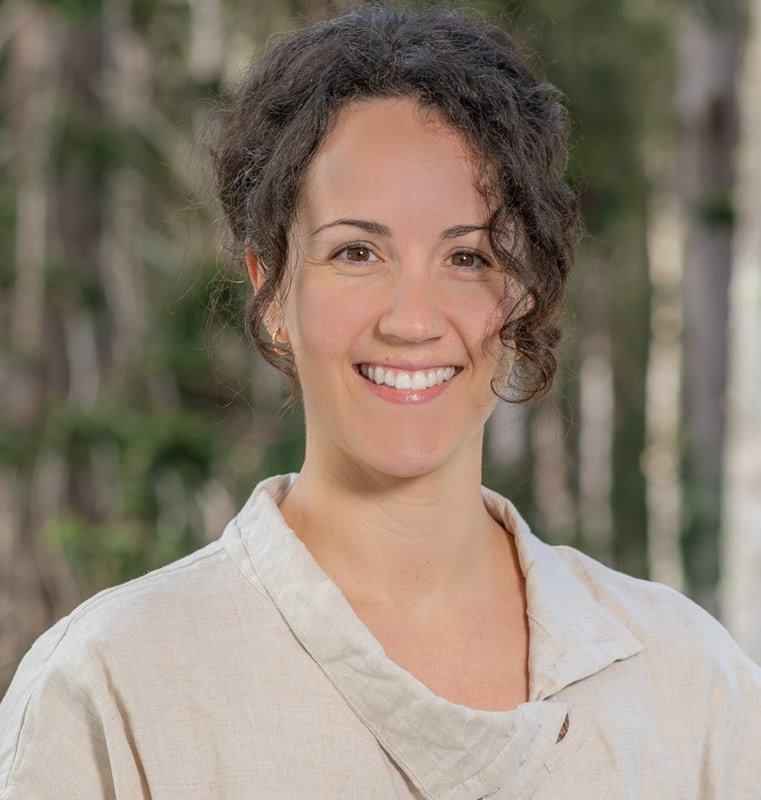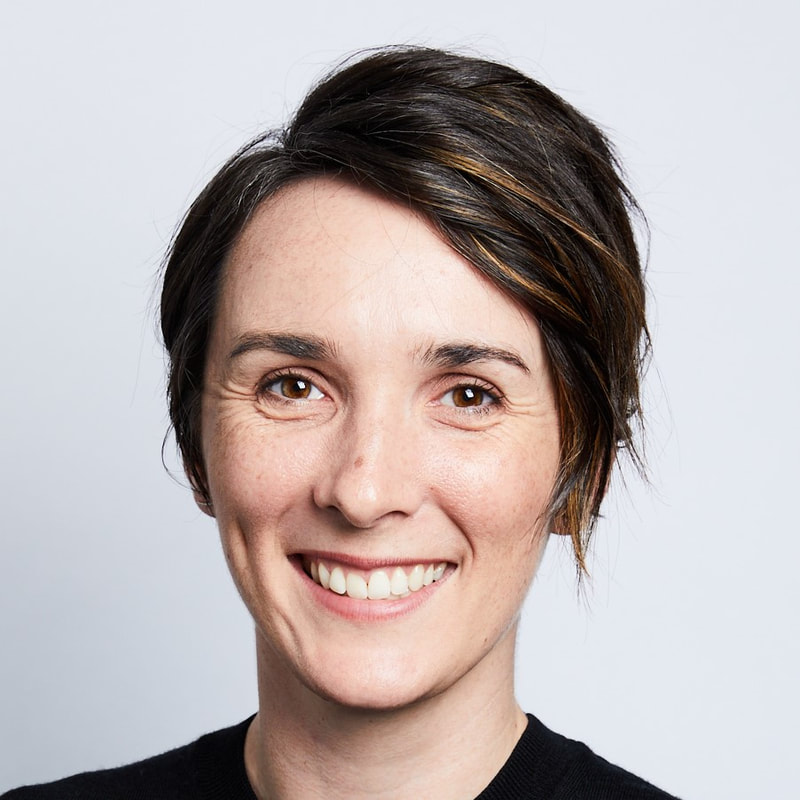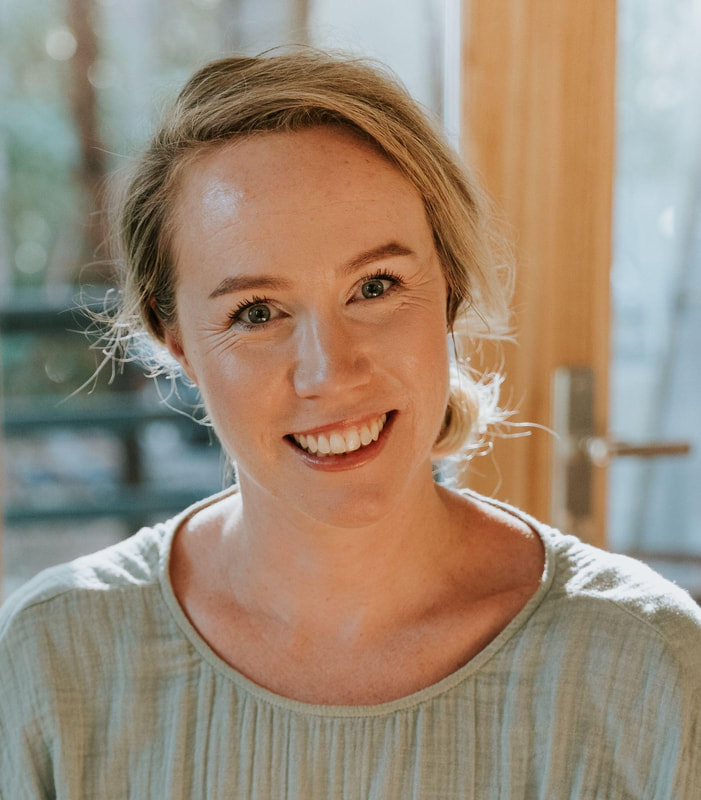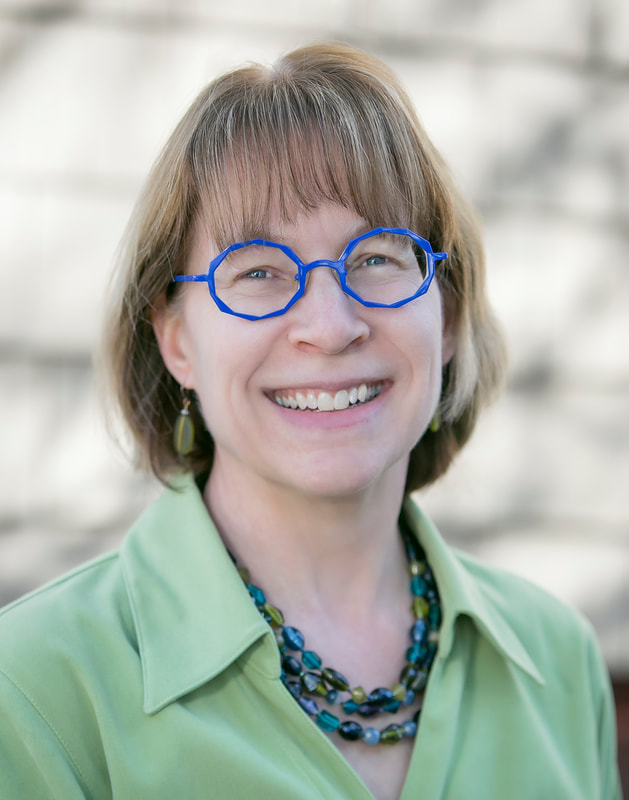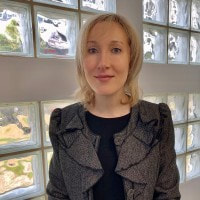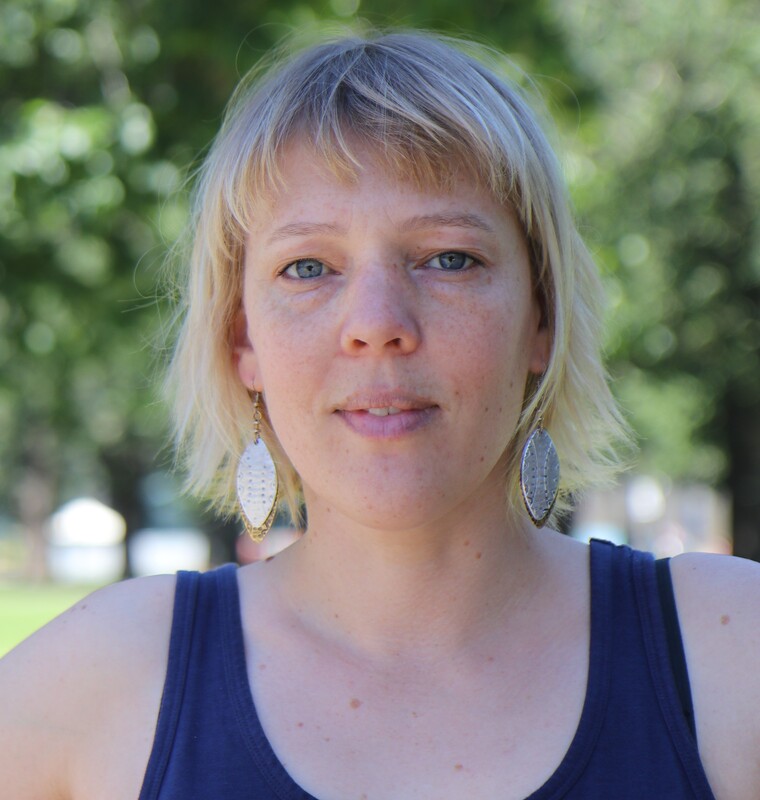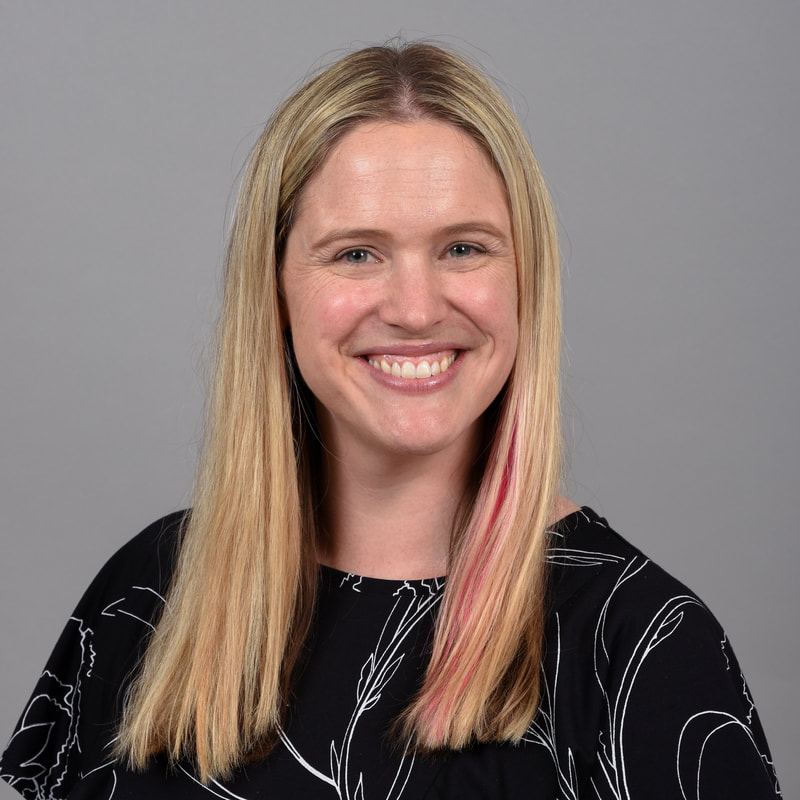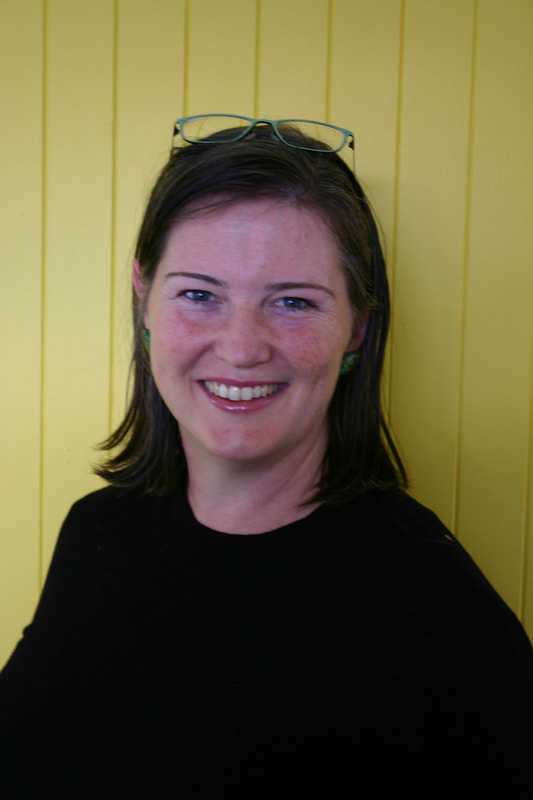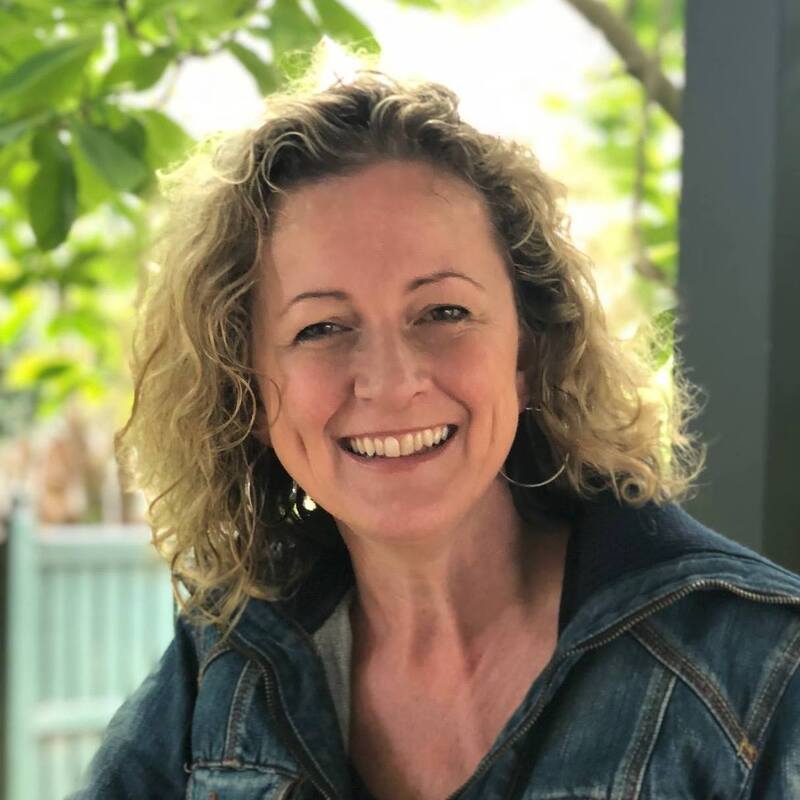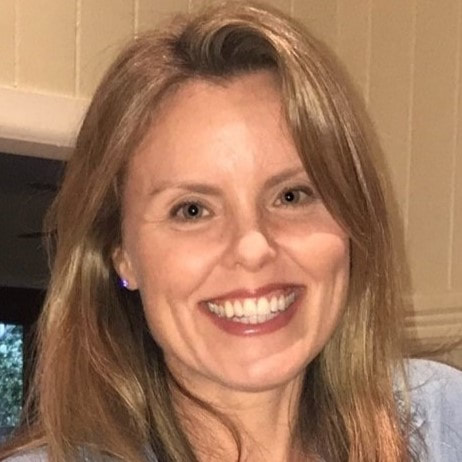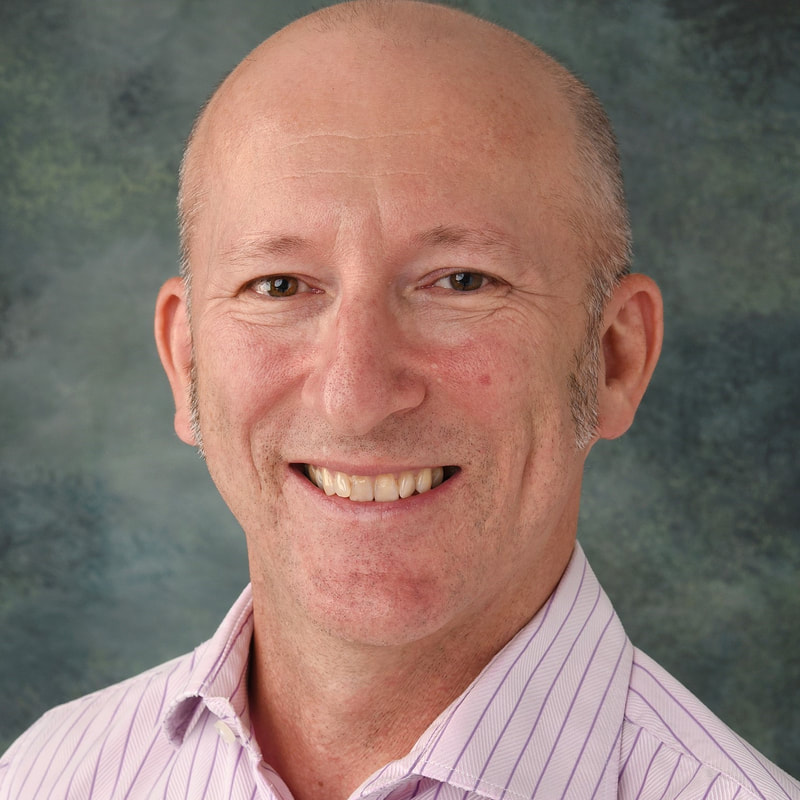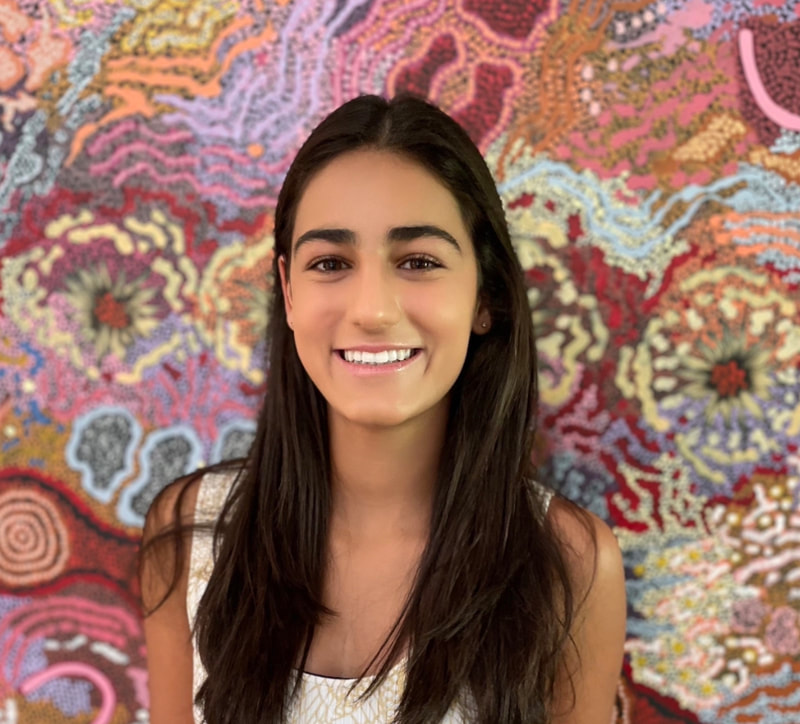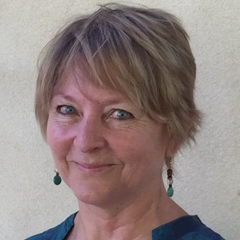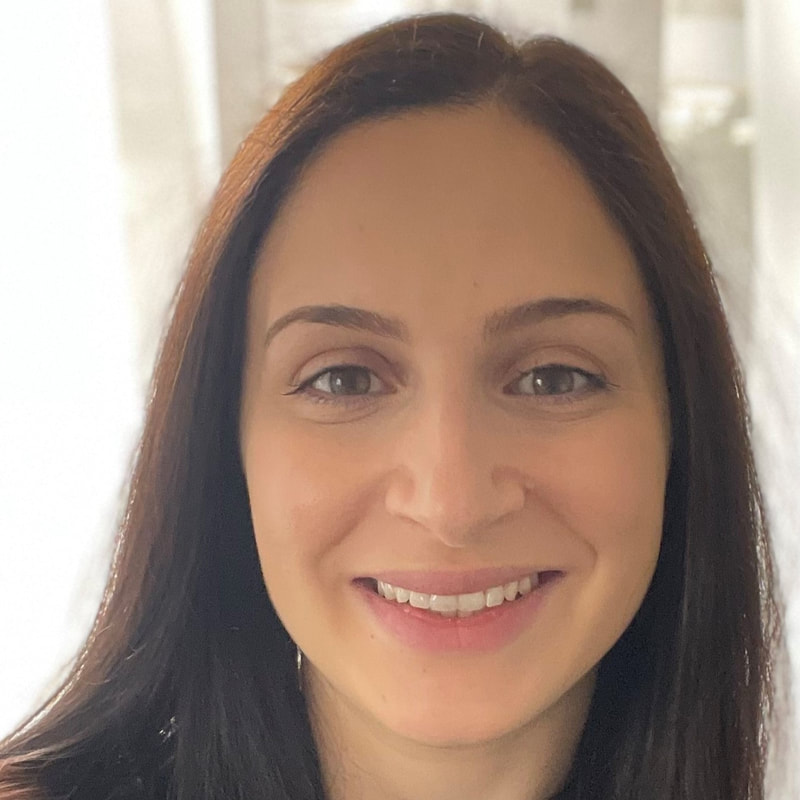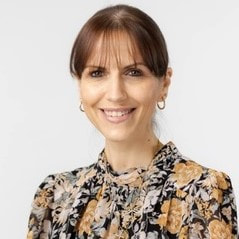Pre-Conference Workshops: Thursday 24 August 2023
Registration rates for pre-conference workshops can be found here. During the registration process you will have the opportunity to select the workshop/s you wish to attend.
FULL DAY WORKSHOPS:
- Developing a Lived Experience Practice Framework for Eating Disorder Treatment Services Presenters: Belinda Chelius, Rohie Marshall, Amanda Long & Lisa Kelly
- "Building the Village" - Developing Specialist Treatment Services for Eating Disorders: Examples from Residential and Other Models of Care Presenters: Catherine Houlihan, Carly Roukos & Rebekah Rankin
|
Developing a Lived Experience Practice Framework for Eating Disorder Treatment Services
Presenters: Belinda Chelius, Rohie Marshall, Amanda Long & Lisa Kelly Time: 9.00am - 5.00pm |
|
|
Workshop Overview: Integration of lived experience workers, practitioners, and support staff is integral to effective service delivery for clients. Eating Disorders Queensland has developed a Lived Experience Practice Framework for eating disorder (ED) services through a co-design, co-evaluation and co-delivery process (Byrne et al., 2021) led by EDQ’s lived experience team. This framework is a guide as to how lived experience work is integrated and practised within an ED treatment service, which:
This workshop would be of interest to organisational leaders, lived experience workers, lived experience clinicians, clinicians, policy/research officers and funding bodies. |
Belinda Chelius is a skilled, dedicated, culturally sensitive and passionate feminist Senior Social Work Clinician who holds a BA (Health Sc & Soc. Services), MSocWK degree; she is an industry Fellow| School of Public Health & Social Work | QUT and the CEO of Eating Disorders Queensland. She has practised in the field of Complex Mental Health, Dual-Diagnosis (Alcohol and or Other Drugs), Trauma (Sexual Assault, Domestic Violence) and Eating Disorders for over 20 years in the Non-For-Profit sector.
Belinda co-authored a case series, The Effectiveness of a Feminist- informed, individualised counselling intervention for the Treatment of Eating Disorders, published in the Journal of Eating Disorders in May 2022. Rohie Marshall is Operations and Health Promotion lead at Eating Disorders Qld. This dual role draws on her strong understanding of the complexities of the healthcare system, and her ability to translate these complexities into accessible programs, services, and messages for a variety of needs. Rohie advocates for the importance of co-design processes and community engagement as an organisational priority. She also values the diversity of EDQ’s clients and practitioners and works to ensure that all are welcome and supported by our service options.
Amanda Long has over 20 years’ experience providing peer support, recovery coaching and care services both in the community and private practice. Her multiple decade lived experience background in eating disorders, family breakdown and trauma gave her a heart to be involved in this line of work. Mandy has been with EDQ for 5 years in numerous roles including Peer Mentor, Senior Mentor, Peer Support Worker and more recently Psychosocial Recovery Coach working with NDIS clients.
Lisa Kelly is a lived-experience counsellor and group facilitator at EDQ, with a Bachelor’s Degree in Psychology and a Master’s in Social Work. Lisa has been involved in the EDQ community for over six years in different capacities as a Mentor, Senior Mentor, Speaker and Peer Support Worker. Lisa has experience working with clients of all ages living with eating issues, diverse-ability, and mental health concerns. Lisa identifies as half-Vietnamese and has an understanding for the importance of cultural sensitivity in therapy for clients who come from ethnic minorities or backgrounds. Lisa is trained in a blend of therapies and believes that therapy is a space for healing, growth and empowerment. Lisa takes a compassionate, trauma-focused, and person-centred approach which values all individuals as experts of their own lived experience. |
|
“Building the Village” – Developing Specialist Treatment Services for Eating Disorders: Examples from Residential and Other Models of Care
Presenters: Catherine Houlihan, Dr Carly Roukos & Rebekah Rankin Time: 9.00am - 5.00pm |
|
|
Workshop Overview: Over the past 5 years the growth in service provision for eating disorders in Australia has included increased access to evidence-based outpatient treatments through eating disorder specific Medicare items, the opening and establishment of Australia’s first residential treatment program “Wandi Nerida”, and funding for additional residential treatment programs to be developed nation-wide.
This workshop will provide education and reflection on eating disorder service development from Australia and around the globe, including clinical service delivery and models of care, day-to-day treatment, common challenges, growing an eating disorder team, and enhancing diversity, inclusion, and lived experience. We will also cover the importance of program evaluation in establishing a new service. To facilitate this, outcomes data from Wandi Nerida’s first 6-months of operation will be presented alongside insights on establishing research processes in residential and other treatment programs. This workshop has been developed for eating disorders clinicians with a background knowledge of eating disorder treatment, and for anyone who is or will be involved in eating disorder service development and design projects.. The examples and scenarios presented will come primarily from our experiences in residential programs, though they will also be relevant and applicable to most specialised eating disorder treatment services (e.g., day and outpatient programs). Group activities, case scenarios, and role-plays will be utilised to enhance learnings and to highlight common examples of client work in these services. Learning Objectives:
|
Dr Catherine Houlihan is a Senior Lecturer in Clinical Psychology at the University of the Sunshine Coast. She has a wealth of experience in developing eating disorder services, including working as the Clinical Director of “Wandi Nerida”, Australia’s first residential eating disorders service. Catherine completed a DClinPsy at the University of Oxford where she helped transform an NHS service to become a centre for excellence in CBT-E. Catherine has also worked as a senior clinician in the Sunshine Coast’s first public adult eating disorder service and was the training coordinator for the Sunshine Coast Eating Disorders Access Trial (Butterfly Foundation).
Dr Carly Roukos is a clinical psychologist from the United States who studied at the PGSP-Stanford Psy.D. Consortium. She has a range of experiences working with those impacted by eating disorders in outpatient, inpatient and residential settings. She is currently the clinical lead at Wandi Nerida, Australia’s first residential eating disorder treatment centre and has been working there since it’s opening in July 2021.
Rebekah Rankin is an early career psychologist and researcher. She is currently completing her PhD through the Translational Health Research Institute at Western Sydney University and is a member of the team conducting the clinical evaluation of Wandi Nerida. Her research focus is on exploring patients’, carers’ and healthcare professionals’ lived experiences of treatment at Wandi Nerida. |
|
Collective Advocacy - coming together to advise on structural change for the prevention of body image concerns and eating disorders
Presenters: Zali Yager, S.Bryn Austin, Marilyn Bromberg, Laura Hart, Ivanka Prichard, Hilary Smith, Melissa Wilton Time: 9.00am - 12.30pm |
|
|
Workshop Overview: Body image and eating disorder prevention research has come a long way over the past 40 years. We now have high quality education programs, and compelling evidence to advocate for legislative and structural changes in the media, school, and medical environments that can improve body image, reduce weight stigma, and prevent eating disorders. Exciting developments in Australia this year mean that we are making progress - and leading the world in this space. This workshop brings together clinicians, researchers, and advocates to build capacity and develop collaborative plans for policy and systemic change. We will hear from presenters providing updates on strategic direction and action at the National Eating Disorders Collaboration, Butterfly Foundation, and The Embrace Collective, as well as updates from the US via Prof. Bryn Austin. Professor Austin will provide guidance for action via the Strategic Training Initiative for the Prevention of Eating Disorders [STRIPED] STRIPED Advocacy Playbook, and we will hear from Body Image Law Expert Dr Marilyn Bromberg. Workshop participants will form working groups to develop proposals for policy advocacy in alignment with the National Strategy for Eating Disorders [Prevention].
The aim of this workshop is to facilitate knowledge sharing, conversation, and agreed action on eating disorder prevention. Australia is leading the world in this space, and this workshop allows ANZAED members and conference attendees to participate in planning collective action for structural change, by learning from international campaigns, being inspired by research evidence about what works, and lending your voice to collective action in the year ahead. Intended Learning Outcomes: At the conclusion of this workshop, attendees will:
|
Zali yager is the Executive Director of The Embrace Collective and Adjunct Associate Professor in the Institute for Health and Sport at Victoria University. With 18 years’ research experience, and a background in health and physical education, Zali is known for figuring out ‘what works’ to help people feel better about their bodies, developing innovating and engaging resources and programs to improve body image, and advocating for changes to school, sport and home environments to create settings and spaces that prevent body dissatisfaction and eating disorders.
S. Bryn Austin, ScD, is an award-winning researcher, teacher, and mentor. She is Professor at Harvard Chan School of Public Health and Boston Children’s Hospital and is director of the Strategic Training Initiative for the Prevention of Eating Disorders: A Public Health Incubator. She is a social epidemiologist and behavioral scientist with a research focus on public health approaches to eating disorders prevention with an emphasis on policy translation research and advocacy. Her research also focuses on determinants of sexual orientation and gender identity health inequities. She is Past President of the Academy for Eating Disorders and Eating Disorders Coalition.
Dr Marilyn Bromberg is the Director Higher Degrees Coursework at the University of Western Australia Law School and a practising lawyer. She researches in the areas of Body Image Law, Health Law and Social Media and the Law and lectures Social Media and the Law and Law, Advocacy, Activism and Change. In addition to her qualifications in law, business and teaching, she has a Graduate Certificate in Population Health Studies. She is passionate about improving body image, particularly about young people.
Dr. Laura Hart is a Senior Research Fellow at the Centre for Mental Health, Melbourne School of Population and GLobal Health. She has been working in population mental health for more than 15 years. Her research focuses on developing, evaluating and disseminating training programs for the public to improve prevention, awareness and help-seeking for mental health problems, and especially eating disorders. She has worked across a range of prevention initiatives, including the development and dissemination of the Confident Body, Confident Child program for parents of preschoolers, and the STRIPED Roadmap for Addressing Weight Stigma in Public Health Research.
Dr Ivanka Prichard is an Associate Professor in Health and Exercise Science in the College of Nursing and Health Sciences at Flinders University. She is the Director of the Embrace Impact Lab at Flinders University, Academic Lead for Health Sciences, and the Deputy Director of the SHAPE (Sport, Health, Activity, Performance, and Exercise) Research Centre. She has a PhD in Psychology and specialises in health psychology with a focus on the nexus between body image, exercise, and eating behaviour. Her research covers social media, body image, and exercise (including work with mothers, the influence of commercial physical activity applications, and social media trends e.g. #fitspiration) as well as health behaviour change, food cues and the influence of different environmental cues on eating behaviour.
Hilary Smith is National Manager of the National Eating Disorders Collaboration (NEDC). Hilary has worked in health and human services for over 20 years in service delivery, management, policy, strategy, sector development and business development roles. Hilary holds a Master of Health Promotion and has a keen interest in health equity and preventative health action across systems and sectors. Hilary is particularly interested in understanding how social determinants of health can prevent eating disorders at both the individual and population level, and led the Prevention Working Group for the development of the National Eating Disorders Strategy 2023-33.
With a BA in Communications from Charles Sturt University, Melissa Wilton worked as a journalist and in communications in the commercial sector, including PR and government relations agencies. She has led Communications, Marketing and Fundraising functions in health-based charities for more than ten years, including at Board level, and for the last five years or so, Mel has been the Head of Communications & Engagement at Butterfly. During this time she has been advocating on behalf of people with lived experience of an eating disorder or body dissatisfaction through advocacy with government, social media organisations, media, education, fashion, the ‘wellness industry’ and more; and working to break down stigma with campaigns representing diverse voices with lived experience. |
|
Clinical Supervision Skills for Dietitians Working in the Eating Disorders Arena
Presenters: Amanda Davis & Amy Davis Time: 9.00am - 12.30pm |
|
|
Workshop Overview: ANZAED practice standards recommend dietitians seek further clinical experience, training, and supervision. Supervision in the dietetic space is less well-established than in other health professions. Access to dietetic clinical supervision may be challenging, secondary to limited numbers of trained supervisors, geographical location, and cost. Dietitians may be hesitant to engage in supervision, and to invest in individual supervision in the private sector.
This workshop will increase understanding of effective delivery of supervision in a group, online format, and experience of engaging in peer supervision with the following activities:
Registrants must be willing to actively participate in the FPS session. Registration limited to dietitians eligible for APD status. |
Amanda Davis (Adv APD, CEDC) Senior Dietitian, Queensland Eating Disorder Service (QuEDS) since 2008. Amanda has extensive experience in consultation to health professionals re: the management of clients with eating disorders and review of clinical guidelines. Her focus is supporting clinicians to confidently provide effective evidence-informed dietetic interventions in the eating disorder arena. She established an eating disorder-specific community of practice (Collaboration of Dietitians in Eating Disorders - COD-ED) and an innovative online peer supervision program (QuEDS Facilitated Peer Supervision program - FPS) which provides ongoing monthly peer supervision to ~150dietitians. She also has a private practise providing supervision of supervision.
Amy Davis (APD, CEDC) has worked as a dietitian in a variety of hospitals, community centres and research projects for over 20 years and has spent the last decade supporting the nutrition needs of those with mental illness, including eating disorders. As a senior dietitian with the QLD Child and Youth Mental Health Service Eating Disorder Program and a private practitioner, Amy provides dietetic support for people of all ages and has been involved with the QuEDS Facilitated Peer Supervision Program since its inception. |
|
Severe and Complex Eating Disorders: Is the Illness or Treatment Ever 'End Stage'?
Presenters: Warren Ward & Rosiel Elwyn Time: 9.00am - 12.30pm |
|
|
Workshop Overview: During the course of experiencing and managing a severe and long-standing eating disorder, an individual may disengage and re-engage in treatment at multiple points. Experiences of treatment may be highly distressing and complicated by co-occurring conditions, medical complexity secondary to the eating disorder, the impacts of malnutrition, historical trauma and traumatic experiences in care, and the individual’s self-beliefs and internalised stigma (such as feels of burdensomeness, shame, and hopelessness for recovery). After multiple attempts to heal and recover from their eating disorder in treatment, an individual may tell family/kinship members/carers and their treating team that they want to end treatment.
A number of complex ethical concerns exist for all involved in collaborative care for the individual affected by the eating disorder, including: preserving life, preserving autonomy, dignity, and quality of life, as well as consideration of important factors in treatment decision making, such as impairment, relational dynamics, communication, suicidality, and hope for recovery. The individual, their personal supports and treatment team may have differing perspectives on the benefit of further treatment, and treatment options, such as acute inpatient care, community care, harm-reduction models, palliative care or medical assistance in dying (physician-assisted suicide). How can this situation be approached with compassion and sensitivity? Is treatment ever futile, and what happens if treatment causes harm when the alternative of not treating the eating disorder may lead to severe medical consequences or death? What level of healing is considered beneficial when a person has a complex, chronic eating disorder? In this workshop, Associate Professor Warren Ward, Director of Ramsay Clinic New Farm and Rosiel Elwyn, PhD student and lived experience researcher, Thompson Institute and La Trobe University, will discuss factors involved in the care of individuals with longstanding eating disorders from a clinical and a lived experience perspective. Hypothetical case examples based on clinical experience will be presented for discussion in groups, and delegates are invited to bring de-identified case examples for discussion and reflection. Suggested readings prior to the workshop include two papers that present case examples and discuss perspectives and ethical considerations on ending treatment for longstanding anorexia nervosa, as well as perspectives on 'terminal' illness: Highly recommended: (Gaudini, J.L., Bogetz, A., & Yager, J., 2022) https://jeatdisord.biomedcentral.com/articles/10.1186/s40337-022-00548-3; (Elwyn, R., 2023) https://jeatdisord.biomedcentral.com/articles/10.1186/s40337-022-00729-0 Additional and recommended readings include a summary paper on current perspectives on the proposed diagnosis of ‘terminal’ anorexia nervosa (Crow, 2023) and a recently published lived experience-authored paper outlining ethical issues with proposed terminality and inequities in care (Sharpe et al., 2023) (Sharpe, S. L., Adams, M., Smith, E. K., Urban, B., & Silverstein, S. 2023) https://jeatdisord.biomedcentral.com/articles/10.1186/s40337-023-00791-2; (Crow, S., 2023) https://onlinelibrary.wiley.com/doi/10.1002/eat.23957 |
Warren Ward is is Associate Professor at The University of Queensland and was Director of the Queensland Eating Disorders Service (QuEDS) from 2005 to 2023. He was also Chair of the Queensland Health Eating Disorder Advisory Group for more than ten years and co-author of the Royal Australian and New Zealand College of Psychiatry (RANZCP) Clinical Practice Guidelines for Eating Disorders. He also recently served as the inaugural Medical Director of Wandi Nerida, Australia’s first residential program for eating disorders, and is currently Director of the Eating Disorder Program at Ramsay Health’s New Farm Clinic.
Rosiel Elwyn is a Master of Psychology graduate and a PhD candidate at the Thompson Institute, studying the neurobiology of anorexia nervosa with a focus on the role of trauma and its effects on the glutamatergic system, the gut microbiome, and interoceptive function. Rosiel currently works as a lived experience researcher and mental health consultant. As part of this work, they have been involved in suicide prevention research and creating frameworks, training and workshops for imbedding lived experience co-design in mental health research. Rosiel is a member of the Queensland Mental Health Commission Lived Experience Advisory Group, the Suicide Prevention Australia Research and Lived Experience Committees, and is a co-lead on the ALIVE National Centre for Mental Health Research Translation Research and Lived Experience Committees. |
|
Channelling youth empowerment and civic engagement to advance research-to-policy translation for eating disorders prevention: A skill-building workshop
Presenters: S. Bryn Austin, Laura Hart & Rhea Werner Time: 1.30pm - 3.00pm |
|
|
Workshop Overview: Increasingly, mental health advocates are recognizing that youth are experts in their own lives and experiences and are putting the voices of affected youth at the forefront of health research and policy change. Eating disorders prevention and translating research evidence to inform policies can be enhanced by the effective integration of youth as partners. Impactful research-to-policy translation initiatives require eating disorders researchers and professionals not only to gain basic knowledge and skills in policy translation, but also to cultivate partnerships with the youth who may be affected by policy in ways that support their mastery of skills in civic engagement, communicating science to policymakers, and constituent organizing. For this workshop, a team including faculty and youth from the Strategic Training Initiative for the Prevention of Eating Disorders: A Public Health Incubator (STRIPED, www.hsph.harvard.edu/striped), a research and training program with special expertise in policy-relevant research and policy translation, will guide participants through the key steps involved in planning effective youth engagement and collaboration. Workshop leaders will begin with an overview of principles and practices from the fields of research-to-policy translation and youth empowerment, informed by practices from relevant health fields. Next, workshop leaders will introduce techniques for integrating youth as essential partners in effective research-to-policy translation activities for eating disorders prevention, including guiding principles from youth advocates themselves. Finally, leaders will guide learners through youth-designed activities to aid identification of practical approaches tailored for learner’s own work setting to implement techniques for integrating youth in research-to-policy translation for eating disorders prevention. Workshop activities will draw from the STRIPED Advocacy Playbook (tinyurl.com/STRIPEDPlaybook), a freely available, step-by-step guide for research-to-policy translation that centers youth and constituent civic engagement through all phases of the work. Through a combination of lightning talks and evidence-based active-learning techniques, this workshop will help learners develop the insights and skills needed to integrate youth effectively into research-to-policy initiatives to advance eating disorders prevention.
At the end of this workshop, learners will be able to:
|
S. Bryn Austin, ScD, is an award-winning researcher, teacher, and mentor. She is Professor at Harvard Chan School of Public Health and Boston Children’s Hospital and is director of the Strategic Training Initiative for the Prevention of Eating Disorders: A Public Health Incubator. She is a social epidemiologist and behavioral scientist with a research focus on public health approaches to eating disorders prevention with an emphasis on policy translation research and advocacy. Her research also focuses on determinants of sexual orientation and gender identity health inequities. She is Past President of the Academy for Eating Disorders and Eating Disorders Coalition.
Dr. Laura Hart is a Senior Research Fellow at the Centre for Mental Health, Melbourne School of Population and GLobal Health. She has been working in population mental health for more than 15 years. Her research focuses on developing, evaluating and disseminating training programs for the public to improve prevention, awareness and help-seeking for mental health problems, and especially eating disorders. She has worked across a range of prevention initiatives, including the development and dissemination of the Confident Body, Confident Child program for parents of preschoolers, and the STRIPED Roadmap for Addressing Weight Stigma in Public Health Research.
Rhea Werner is a high school student in Year 11 with a passion for promoting preventive healthcare policy, specifically for eating disorders and body image. She founded and leads the Embrace Collective Youth Initiative - the first, Australian nationwide youth-led non-profit for eating disorders - and also currently leads the Australian Youth Policy Team at Harvard STRIPED. Through her initiatives, Rhea has impacted 397,000 people. She is currently helping to spearhead the implementation of mental health and body image policies worth $55 million in collaboration with the Australian Federal Government. |
|
New Understandings Meet Old Treatments: Putting a Contemporary Face on Established Protocols
Presenters: Dr Susan Byrne & Dr Anthea Fursland Time: 1.30pm - 5.00pm |
|
|
Workshop Overview: The eating disorder (ED) treatments with the strongest evidence base are Enhanced Cognitive Behaviour Therapy (CBT-E) for adults and Family Based Treatment (FBT) for children and adolescents. Both of these treatments were originally developed over 20 years ago. In our long careers as scientist-practitioners in the ED field, we have seen many changes; perhaps none so tremendous as in the past 20 years. Since the development of these evidence-based treatments (EBTs), we have seen an explosion of research (afforded by rapid technological advances), changes in our socio-cultural climate and transformations in attitudes toward mental health that are not reflected in the treatment manuals that continue to be used. While we stand by our support of CBT-E and FBT, in this workshop we will we share our clinical experience to discuss these treatments in terms of their relevance today and how they might be expanded to encompass the changes that have occurred over the past 20 years. We will highlight cutting-edge research regarding the genetic and neurobiological underpinnings of EDs; a greater appreciation of the effects of starvation; our developing knowledge of neurodiversity and gender diversity; recognition of weight stigma; the importance of listening to the lived-experience voice; the changing face of the ED treating team and treatment advances in other mental health conditions. We will facilitate small group discussions, reflection and feedback to generate suggestions about how to build on EBTs that are now almost two decades old in the context of different treatment settings.
|
Dr Susan Byrne, DPhil, PhD, MPsych (Clinical), is a Clinical Psychologist with over 30 years experience in research and clinical practice in the field of eating disorders. She has a MPsych and a PhD from the University of Western Australia (UWA) and a DPhil from Oxford University. Until recently Sue was a senior academic at UWA, School of Psychological Science. Currently, she is a Professional Practice Fellow at UWA and an Adjunct Clinical Professor at Curtin University. Sue is involved in consultation, supervision, research and training with eating disorder services in both the public and private sectors and she treats individuals across all ages and eating disorder presentations.
Dr Anthea Fursland, PhD, FAED. With over 40 years’ experience, in the UK, USA & Australia, Anthea was Director of CCI and WAEDOCS, co-authored a web-based self-help resource and many peer-reviewed papers. She has trained and supervised clinicians throughout Australia in CBT-E. She currently offers psychological assessment, training and consultation. Anthea serves on the Steering Committee of the National Eating Disorders Collaboration and is a member of the Australian Government Department of Health Eating Disorders Technical Advisory Group. She is Past-president of ANZAED, a Fellow of the Academy for Eating Disorders (AED), recipient of the 2016 ANZAED Lifetime Achievement Award, and the 2019 AED Outstanding Clinician Award. |
|
Implementing Meaningful, Effective, and Strategic Collaborations in Research - A Workshop for Academics, Clinicians, and Lived Experience
Presenters: A/Prof Andrea Phillipou (Chair), Dr Erica Neill, A/Prof Genevieve Pepin, Shannon Calvert & Dr Stephanie Miles Time: 1.30pm - 5.00pm |
|
|
Workshop Overview: This workshop, led by facilitators with diverse research expertise, aims to support and provide participants with tools to establish and sustain compelling and authentic research collaborations by exploring co-design and co-production principles, including working with diverse disciplines and building partnerships with people with lived /living experiences of eating disorders.
The workshop will be structured in three phases: Phase 1: Process – Co-facilitators will cover the following key topics:
Phase 2: Principles - Using various examples and 'case studies, Co-facilitators will cover the following:
Phase 3: Practice – bringing it all together. Throughout the workshop, participants will break off into small groups to undertake a number of activities. This will include presenting case studies where participants will explore how to approach research collaborations for different initiatives. Participants will also undertake reflective practice exercises in which they will creatively map and identify ways of applying principles of co-design and co-production, including involving people with lived experience in future initiatives. In completing this workshop, participants will walk away with a deeper understanding and knowledge of how research can be authentic, multidisciplinary, and collaborative. In addition, they will take with them tools to embed genuine co-design and co-production principles to maximise richer outcomes and impact. |
A/Prof Andrea Phillipou is a Principal Research Fellow in Eating Disorders at Orygen and The University of Melbourne. She is the Head of Eating Disorders Research and leads the Scientific Work in Anorexia Nervosa & Other Eating Disorders (SWAN) Research Group. Andrea’s work uses various bio-psycho-social methods and is undertaken in collaboration with large multi-disciplinary teams of researchers from other disciplines, clinicians, individuals with lived experience, families/carers, and not-for-profit organisations. She has extensive experience working in collaborative research teams ranging from small-scale projects to large-scale national and international projects.
Dr Erica Neill is a Research Translation Fellow at Orygen and The University of Melbourne, working in the Australian Eating Disorders Research & Translation Centre. She has a background in psychosis, treatment resistant depression, body image and cognition. Dr Neill has expertise in clinical trial development and management and recently completed work on a trial examining the benefits of oxytocin in reducing body image focus.
A/Prof Genevieve Pepin is an experienced mental health occupational therapist and a proficient academic. Built on almost 20 years’ work in mental health and eating disorders in Canada and Australia including partnerships with national and international leaders in the field, Genevieve has established herself as a significant contributor to eating disorders research. Her expertise and passion are in research co-produced with carers of people with an eating disorder, understanding the impact of eating disorders on function and the daily activities of those with an eating disorder and their family, and the development of innovative interventions promoting best health outcomes.
Shannon Calvert is a Lived Experience Educator working with national government and non-government organisations in an advisory capacity. She has presented and delivered training to multidisciplinary teams, and organisations on trauma-informed treatment interventions, the Lived Experience workforce, and embedding lived experience partnerships in co-designing policy, research, and education. Shannon is the Lived Experience and Co-Production Co-Lead at the Australian Eating Disorders Research and Translation Centre and Consumer Co-chair of the National Mental Health Consumer Carer Forum. She was recently appointed to the Million Minds Mental Health Research Mission expert advisory panel to guide Australia’s future roadmap in mental health.
Dr Stephanie Miles is a Research Fellow at Orygen and The University of Melbourne. Her research focuses on anorexia nervosa, cognitive flexibility, and related cognitive and psychological factors. She has broader research interests in eating disorders, orthorexia nervosa, and cognitive assessment. Dr Miles is currently contributing to the development of a longitudinal research database for youth with eating disorders. Dr Miles was previously the co-chair of the ANZAED Neuroscience SIG and served on the ANZAED social media committee. |

